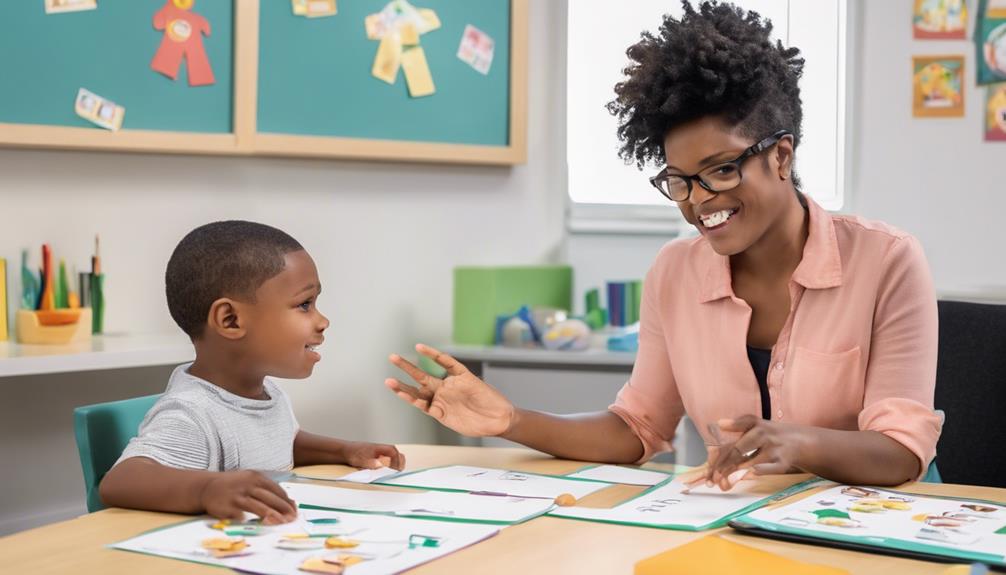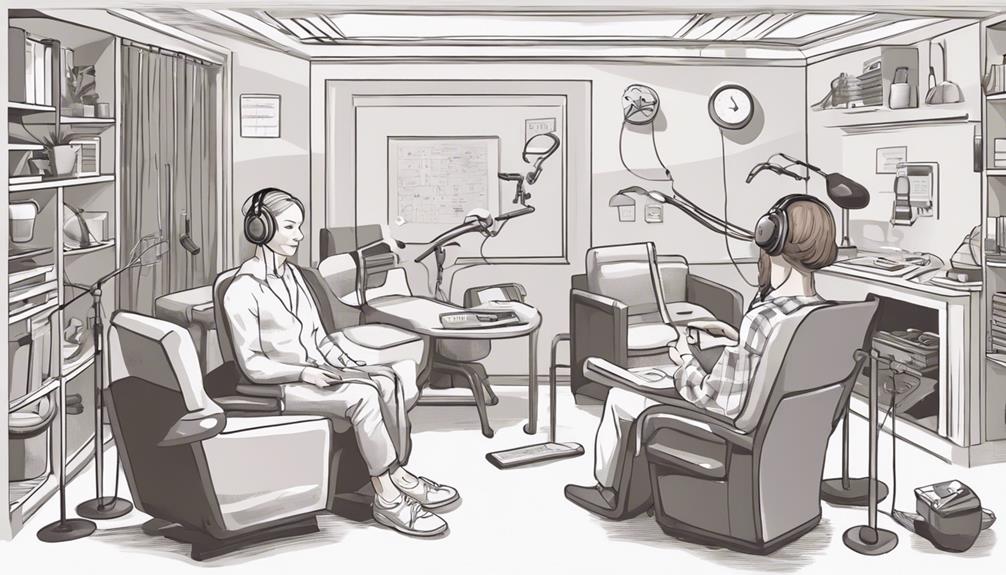As speech therapists, we have all encountered the difficulty of helping children master WH questions. Being able to answer these types of inquiries is crucial for effective communication, so what techniques can we use to assist our clients in improving this essential skill?
By exploring various strategies, techniques, and activities tailored to individual needs, we can lay the foundation for significant progress in WH question mastery.
Join us as we delve into practical approaches that can make a real difference in enhancing language development and communication skills for the children we work with.
Key Takeaways
- Understanding different types of WH questions is crucial for effective communication skills.
- Employing strategies like role-playing and varied contexts enhances WH question mastery.
- Targeted interventions and practice aid in developing accurate responses to WH questions.
- Tracking progression and providing support are vital for improving WH question skills in speech therapy.
Understanding Different WH Questions
Understanding the various types of WH questions is fundamental in enhancing communication skills during speech therapy sessions. In speech therapy, we often work with children to help them develop language and communication milestones. One crucial aspect of this development is the ability to answer different types of WH questions. These questions, including Who, What, Where, When, Why, and How, play a significant role in expanding a child's vocabulary and understanding of the world around them.
Who questions focus on individuals or characters, encouraging the child to recall specific people or seek personal information. What questions typically involve objects or actions, often being the first type of question that children can answer as they're concrete and observable. Where questions help children understand locations, starting with more tangible responses. When questions, on the other hand, involve time-related inquiries, which can range from more general to specific instances. By mastering these different types of WH questions, children can provide semantically correct responses, enhancing their communication skills in speech therapy sessions.
Strategies for Asking WH Questions
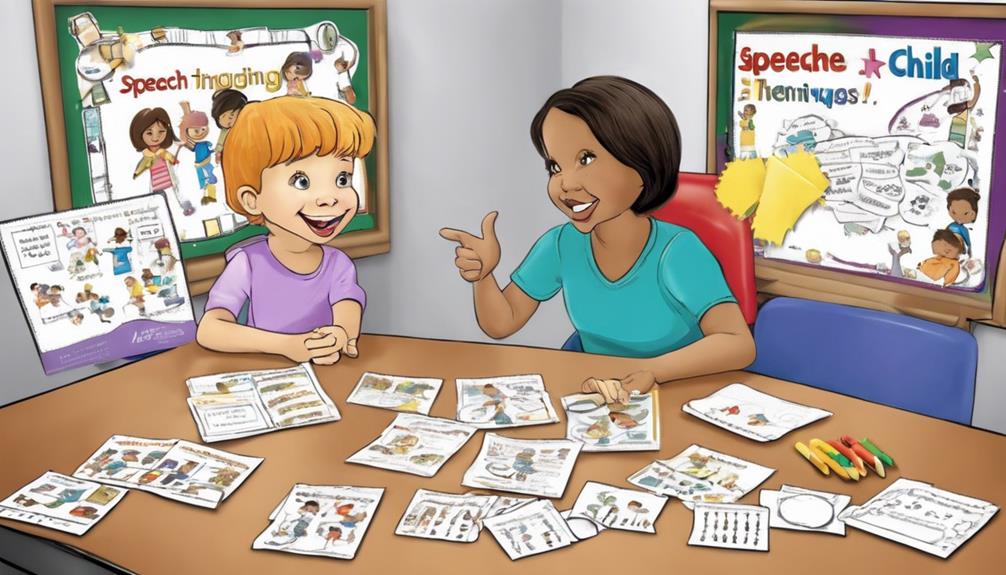
Utilizing visual aids and practicing in diverse contexts are key strategies for enhancing the effectiveness of asking WH questions in speech therapy sessions. Visual aids such as pictures or objects can help individuals better comprehend and process the information related to WH questions. By incorporating visual elements, the understanding of the questions is improved, making it easier for clients to formulate responses.
Practice plays a crucial role in solidifying the ability to ask WH questions. When individuals practice asking these questions in various contexts, they can generalize their skills and better understand how to apply them in different situations. Furthermore, breaking down complex WH questions into simpler components can facilitate learning and response, making it easier for clients to engage with the material.
Feedback and reinforcement are essential components of asking WH questions. Providing positive reinforcement when a client answers a question correctly can help reinforce learning and encourage active participation. Encouraging active listening and engagement during WH question activities not only enhances participation but also fosters skill development in a more interactive manner.
Techniques for Answering WH Questions
When addressing Techniques for Answering WH Questions, we emphasize utilizing strategies like role-playing for practice.
This technique can assist in creating real-life scenarios that aid in comprehension and retention.
Strategies for WH Questions
In speech therapy, we employ visual aids and real-life examples to facilitate children's comprehension and responses to various types of WH questions. To enhance learning and engagement, interactive activities tailored to each WH question type are utilized. Encouraging critical thinking, we prompt children to explain their responses to 'Why' questions, fostering reasoning skills. Structured practice scenarios are essential for honing language comprehension and communication skills through asking and answering WH questions. Progress tracking is integral in monitoring accuracy and fluency of WH question responses over time to evaluate advancements in speech therapy.
| Strategies for WH Questions | Benefits |
|---|---|
| Use visual aids | Facilitates comprehension |
| Real-life examples | Enhances learning |
| Interactive activities | Promotes engagement |
| Progress tracking | Monitors improvement |
Role-playing for Practice
Moving from honing language comprehension through structured practice scenarios, we now shift our focus to the hands-on technique of role-playing for practicing answering WH questions. Role-playing allows children to immerse themselves in simulated real-life settings to enhance their understanding and response skills.
Here are key benefits of incorporating role-playing in speech therapy sessions:
- Interactive approach for improved comprehension
- Understanding context and applying language structures effectively
- Enhancing critical thinking and problem-solving abilities
- Boosting confidence in answering WH questions
Through role-playing, children actively engage in scenarios that require them to think critically, solve problems, and respond to WH questions with confidence and clarity, fostering a more holistic development of their speech and language skills.
Types of WH Questions in Speech Therapy
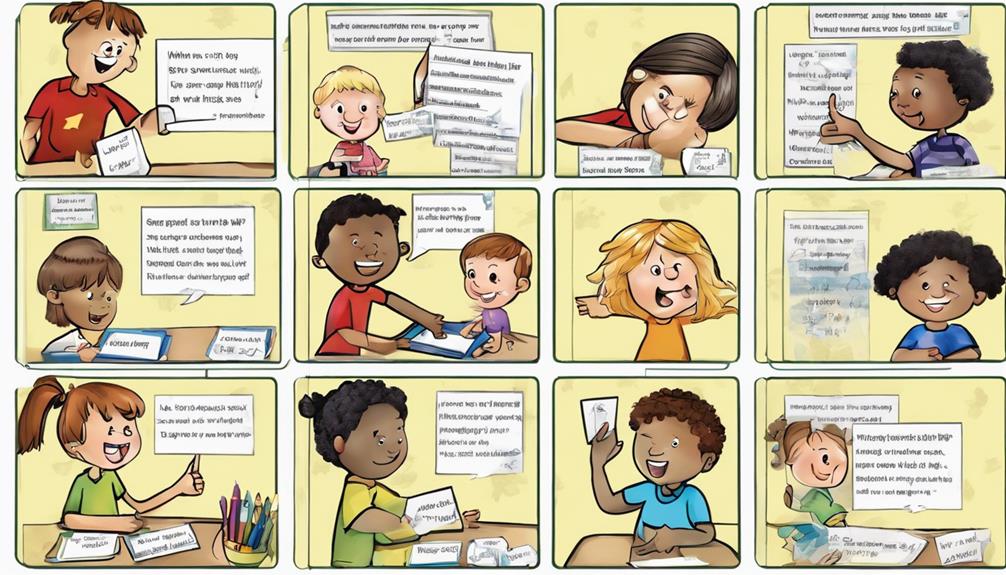
Let's explore the various types of WH questions used in speech therapy. Understanding the distinctions between Who, What, Where, When, and Why questions is crucial for effective communication interventions.
Each type serves a unique purpose in facilitating language development and enhancing conversational skills.
WH Question Types
When working on WH question types in speech therapy, it's essential to understand the distinct purposes of Who, What, Where, When, and Why questions.
- Who questions focus on people or characters, seeking recall or personal information.
- What questions inquire about something and are often the first questions a child can answer.
- Where questions ask about specific locations, starting with concrete answers.
- When questions inquire about time, ranging from general to specific instances.
Understanding these different types of WH questions is crucial for speech development and enhancing language skills. By targeting specific question types, therapists can guide individuals towards reaching communication milestones and effectively answering WH questions in various contexts.
Speech Therapy Strategies
Implementing tailored teaching strategies for different types of WH questions is essential in speech therapy to enhance communication skills effectively.
Various types of WH questions, such as Who, What, Where, When, Why, and How, serve distinct purposes in facilitating language development and social interactions.
Speech therapists employ specific teaching methods for each WH question type to address cognitive abilities and support children's progress effectively.
Progress monitoring plays a vital role in speech therapy, allowing therapists to assess proficiency across different WH question types and adjust interventions accordingly.
Common Challenges With WH Questions
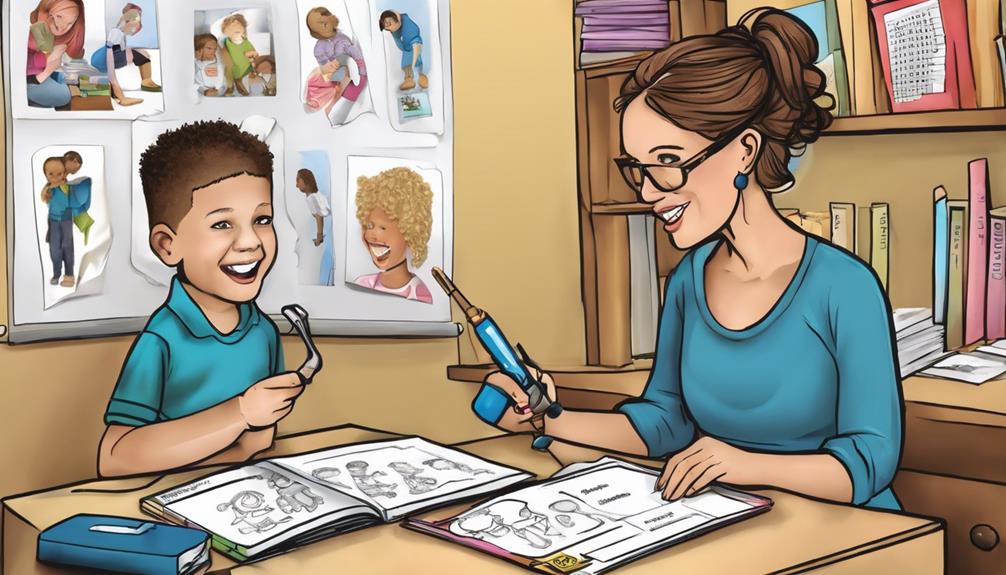
Understanding the various meanings of WH questions poses significant challenges for children, requiring differentiation skills and comprehension abilities. When addressing WH questions in speech therapy, several common challenges may arise:
- Difficulty distinguishing between different types of WH questions like Who, What, Where, When, Why, and How.
- Formulating appropriate responses to each type of WH question based on comprehension and vocabulary proficiency.
- Integrating various language components such as syntax, semantics, and pragmatics to accurately respond to WH questions.
- Children with certain diagnoses, such as autism, may encounter additional hurdles in processing and answering WH questions effectively.
Addressing these challenges is vital in helping children reach their communication milestones and enhance their overall language development. By identifying and working through these obstacles, speech therapists can support children in mastering the complexities of WH questions and improving their phonological awareness.
Developing WH Question Skills

To cultivate proficient WH question skills in children, structured practice and tailored interventions are essential components of effective speech therapy sessions.
Working on WH questions involves teaching children how to answer Where questions, along with other question words like What, When, Why, Who, and How. When a child is having trouble with WH questions, it's crucial to focus on developing language and communication milestones.
By guiding the child to comprehend and answer various types of WH questions accurately, therapists can measure progress in their questioning abilities. Through targeted strategies, speech therapy aims to help children master the ability to ask questions and engage in meaningful conversations.
It's important to recognize that the progression of WH question skills follows developmental milestones, starting from simple questioning to more complex forms. By nurturing these skills, children can enhance their language abilities and social interactions, paving the way for improved communication skills.
Engaging Activities for WH Questions
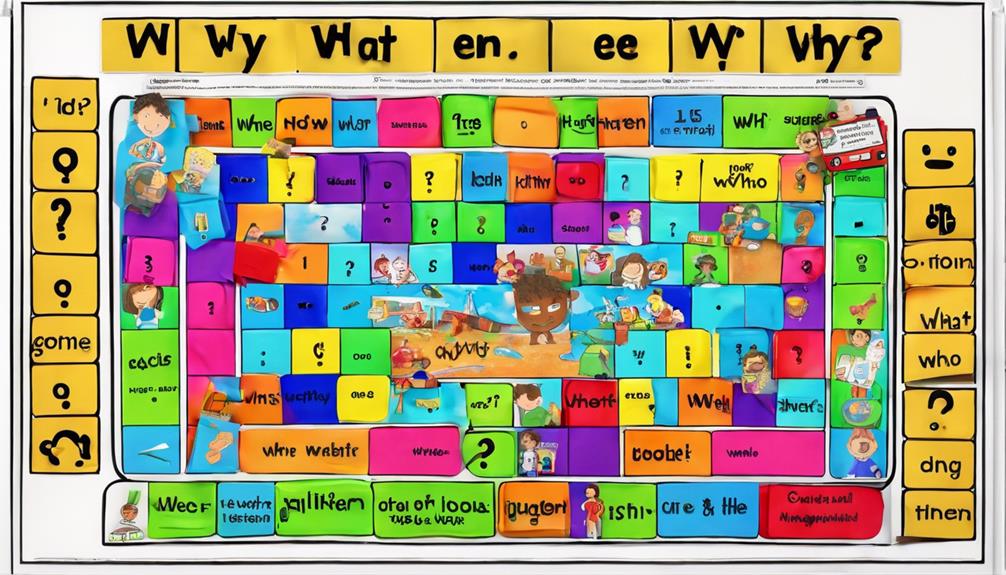
Engaging in interactive activities that involve real-life pictures and interactive books can enhance children's understanding and practice of WH questions in speech therapy sessions. Utilizing these tools can make learning more enjoyable and effective.
Here are some engaging activities for WH questions in speech therapy:
- Using real-life pictures to prompt responses and improve comprehension skills.
- Incorporating interactive books to practice Who, Where, and What questions in a fun and educational manner.
- Implementing leveled sentence formulation activities with real pictures to help children grasp different WH question concepts.
- Formulating and asking a variety of WH questions during therapy sessions to provide learning opportunities and reinforce response skills.
Enhancing Communication Through WH Questions
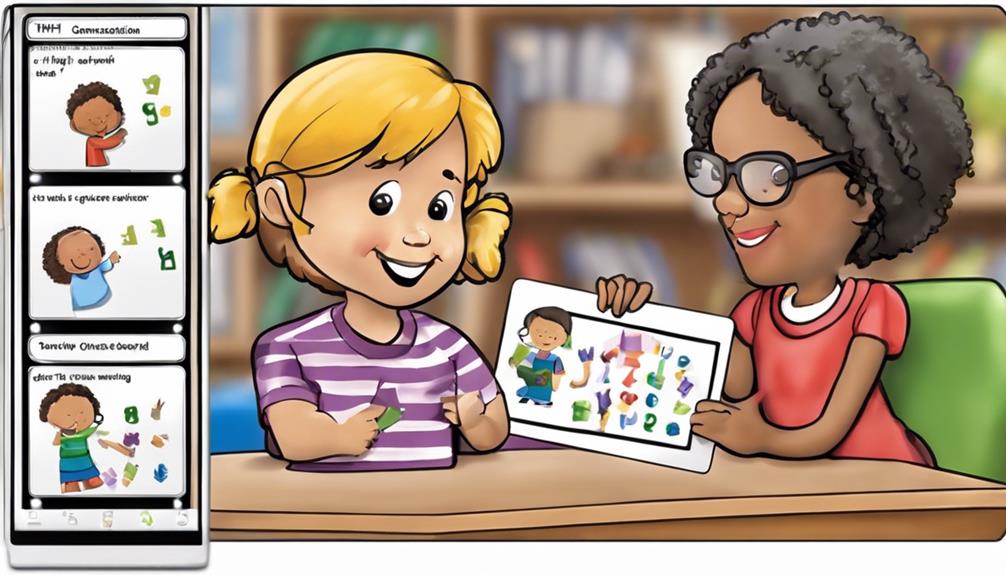
Transitioning from engaging activities for WH questions is crucial in speech therapy sessions for fostering language development and social interaction skills.
Enhancing communication through these inquiries is pivotal. In speech therapy, we target WH questions to help individuals ask and answer questions correctly, make connections between words, and reach communication milestones.
By practicing WH questions, individuals can improve their ability to inquire about their surroundings, express thoughts effectively, and engage in meaningful dialogues. Some individuals may have trouble answering WH questions initially, but with the right therapy and support, they can enhance their communication skills.
Through structured therapy sessions, individuals are able to place WH questions in the correct context, leading to improved understanding and usage of these question types. Mastering WH questions in speech therapy is essential for individuals to develop their language comprehension, critical thinking abilities, and social interaction skills effectively.
Frequently Asked Questions
What Is the Hierarchy of Asking Questions in Speech Therapy?
In speech therapy, the hierarchy of asking questions starts with 'What,' followed by 'Who,' 'Where,' 'How,' 'When,' and 'Why.' Each question type presents increasing complexity.
Understanding this hierarchy helps tailor interventions. Progressing through the hierarchy allows targeted skill development. Mastery equips individuals with essential communication skills for social and academic contexts.
How Do You Answer Why Questions in Speech Therapy?
When we answer why questions in speech therapy, we need to delve into the reasons or causes behind a situation.
It's about fostering critical thinking and problem-solving skills. By encouraging children to respond to why questions, we help them grasp cause and effect relationships, promoting higher-level thinking and language development.
Addressing why questions in therapy sessions is key to enhancing communication skills and expressive language abilities. It's all about improving how we articulate thoughts, emotions, and intentions effectively.
WHat Are the Rules for Asking a WH Word Question?
When asking a WH question, it's crucial to understand the rules for each question word. Each WH word serves a unique purpose in seeking information.
By mastering these rules, we can enhance our communication skills and engage in meaningful conversations. Clarify doubts, seek understanding, and express thoughts effectively by following these guidelines.
Learning the ins and outs of asking WH questions empowers us to communicate with clarity and precision, fostering better connections with others.
What Are the 7 W and H Questions?
We know the 7 W and H questions are Who, What, Where, When, Why, and How. Each of these questions plays a crucial role in communication, helping us gather information and understand various situations.
By mastering these questions, we can enhance our language skills, critical thinking, and ability to communicate effectively. They're vital tools for academic success, social interactions, and problem-solving.
Understanding and using these questions can greatly benefit our cognitive abilities.
Conclusion
In conclusion, mastering WH questions in speech therapy is absolutely essential for children's language development and communication success. These skills are the key to unlocking effective communication and understanding in various social situations.
By honing in on WH question skills through tailored strategies and engaging activities, speech therapists can help children reach new heights in their language proficiency.
So, let's dive in and conquer WH questions together for unstoppable communication growth!

